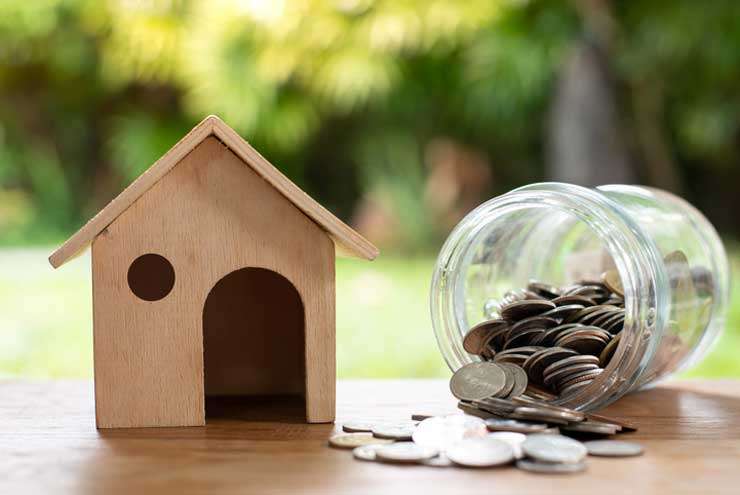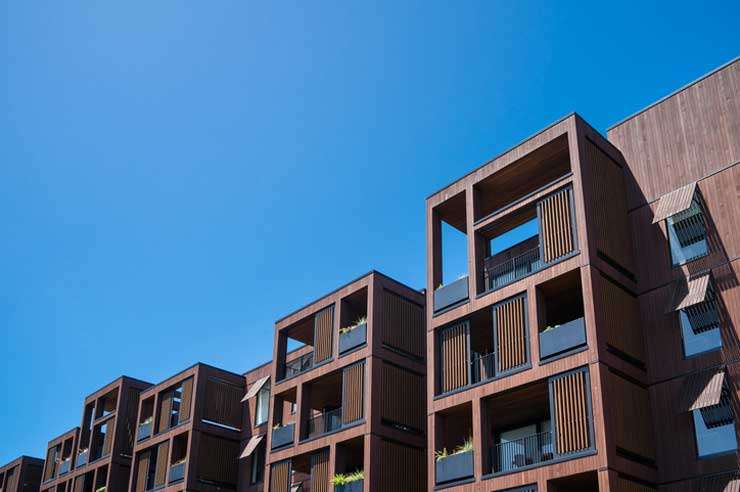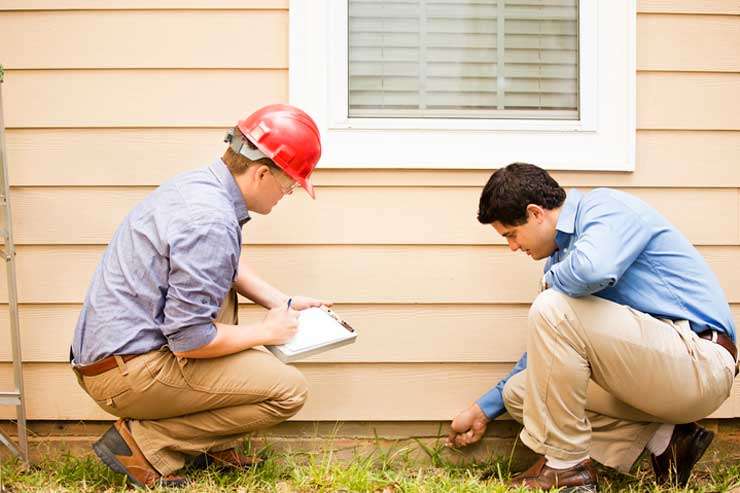Buying your first home is a rite of passage for young Kiwis. It’s not easy, but not impossible. If you’re really committed you will ultimately find a way onto one of the bottom rungs of the property ladder.
READ MORE: Find out if your suburb is rising or falling
Understanding how the home buying process works will help you along the way and can assist you in overcoming any doubts or fears.
With this OneRoof guide you can learn how the home buying process works and get to know some real estate jargon:
Start your property search
YOUR FINANCES
- Sorting your finances: To buy your first home you’ll need a deposit and sufficient income to make monthly mortgage (home loan) repayments and other bills. Most first home buyers need a deposit of 10 to 20 per cent of the home’s value. Some of that will come from KiwiSaver. You may be lucky enough to have family who can help with some of the deposit. If your deposit is 20 per cent the bank will lend the other 80 per cent. You’ll see this referred to as the “loan to value ratio” (LVR). Not everyone has their finances sorted from the day they become adults. You may need to learn to budget, spend less, and build up a deposit gradually.
- Saving more: It takes time to save a deposit. You can speed the process along by reducing your spending, earning more, or both. Once you know how much you need to save each week or month, create a budget around that. Spending is a touchy subject when it comes to first home buyers. You don’t need to live like a monk, but making some sacrifices financially will pay off.
MORTGAGES
- A mortgage is a giant loan from the bank. Your deposit and mortgage put together indicate how much you can spend on your first home, although you’ll need to keep some money aside to pay lawyers’ fees, building inspections, insurance premiums and move in costs.

Saving for a deposit is often the biggest hurdle buyers face. Photo / Getty Images
KIWISAVER AND OTHER GOVERNMENT SUPPORT
- Most first home buyers withdraw savings from their KiwiSaver to make up part or all of their deposit. Many also qualify for a KiwiSaver First Home Grant, which can add up to $10,000 of free money for a couple (or $20,000 for a brand new home). If you still can’t make up a 20 per cent deposit you might qualify for the government’s First Home Loan scheme (formerly Welcome Home Loans), which allows you to buy with a 5 per cent deposit. It’s not a loan, but a guarantee to the bank from Kāinga Ora. In the case of both KiwiSaver withdrawals/grants and the First Home Loan, you need to live in the house yourself for a period of time, not rent it out from day one Kāinga Whenua loans is a scheme for Māori who want to build a home on ancestral land.
HOME LOAN BASICS
- What you need to know: When you take out a mortgage out you will make monthly repayments, which are usually a mixture of principal (the money you borrowed) and interest (the bank’s charge). The monthly repayments will be calculated on the amount you owe, the interest rate, and the number of years you have spread the loan over. That is typically 15, 20, 25 or 30 years.
- Types of loans: First home buyers will almost always take out a principal and interest loan, where you gradually pay down the money you borrowed (principal) and your mortgage gets smaller over time. Banks also offer “interest only” mortgages, which have lower monthly payments. They are typically only for investment properties, says mortgage broker Rupert Gough, from The Mortgage Lab in Tauranga. You will also need to choose between variable, fixed (also called floating) or revolving credit mortgages. A variable rate mortgage goes up and down when the country’s Official Cash Rate (OCR ) changes. Your bank will also offer fixed rates ranging from six months to five years, which gives you certainty about how much your monthly repayments will be. Revolving credit is like a giant overdraft. The advantage is when your wages or salary are credited to your account, the amount owing on your mortgage reduces temporarily, meaning you pay less interest in the long run.
- Will I qualify? When deciding whether to lend, banks look at your income, /expenses/debt/credit record/savings/the property itself and your employment status. Gough says the two main reasons banks may refuse to lend to you is too small a deposit, and not enough income. If you can increase your income and decrease your expenses, you can overcome these issues. When looking at your expenses the bank takes into account your student loan if you have one, consumer debt and buy now pay later purchases, says Gough. Repayments affect how much you can afford to pay each month in mortgage.
- Use a mortgage broker/advisor. Buying your first home is a huge learning curve. Brokers gets paid by the bank, not you. They can compare offers, guide you through the buying and borrowing process and help with KiwiSaver paperwork.
- The bank of mum and dad. Around three quarters of first home buyers get some sort of help from their parents, says Gough. That could be a loan for the deposit, either in cash or borrowed against their own home, or parents “go guarantor” on the loan. That is, they guarantee to pay your loan if you default (stop paying the loan). Going guarantor can result in the parents losing their home if it all turns to custard and they need to take legal advice. Gough says banks require at least 5 per cent of the deposit to be genuine savings, not loans from parents or others.
- Pre-Approval. Most first home buyers apply for “pre-approval” from the bank. It’s an indication of how much you can borrow. You can get this by going direct to the bank or using a mortgage broker who will help you with the process. Preapproval comes with conditions, such as getting a valuation of the property from a registered valuer approved by the bank to prove it’s worth what you’re paying.
- Borrowing for a new build. New builds are especially popular with first home buyers in New Zealand because you can typically buy with a 10 per cent deposit and borrow up to 90 per cent of the home’s value. You need to meet certain requirements such as buying within six months of completion direct from the developer. If you qualify for a KiwiSaver First Home Grant it is doubled for a new home. When you buy new you will either: 1. buy land and have progress payments released by the bank as the build progresses; or 2. have a “turn key” contract where you pay a deposit up front, and the bank releases your mortgage when the home gets its code of compliance certificate from the council, says Gough. Turn key has a greater risk. If the build runs over a year, your loan offer from the bank will expire.
FINDING THE RIGHT PROPERTY
- The start of your property journey. Your first home is the start of a journey towards your ideal home. You will almost certainly need to compromise on the location, number of bedrooms, style of home (e.g. flat, apartment, terraced house), and many other factors. Start by shopping around on OneRoof. Set up a saved search with your parameters such as price, location, and bedrooms. Very often the house you think you’re looking for isn’t the one you buy, so keep your options open. Two bedrooms can become three, for example, if there’s an unused dining room. Or a minute’s walk to a good public transport link might make living further out feasible. Shortlist properties and visit as many open homes as you can, even if you’re not yet ready to buy.

For many buyers being close to amenities is key. Photo / Fiona Goodall
- Suburb. Most first home buyers have a suburb or two in mind. That might be close to work, entertainment, or family. Or it may be in a cheaper area on the edge of town, with many new homes available. It can be a good idea to look for up and coming suburbs where property prices will rise faster than others. Sometimes you can get into a better suburb by choosing worst house in the best street and using elbow grease in to improve it.
- House, unit, or apartment. Living in a freestanding house on a quarter acre section is the Kiwi dream. Not everyone can afford that, or even wants to spend their weekends doing gardening and maintenance. Don’t knock living in units or apartments until you’ve tried it. Do be aware that you sometimes need a bigger percentage deposit on an apartment. With apartments, units and cross-leased properties (where two houses have a share of the same land) you will be more limited in what renovations you can do to your property. The common areas of apartments are often run by body corporates and you will pay levies, which cover management, exterior maintenance and insurance.

Apartments can be a cheaper option than buying a house. Photo / Getty Images
- What attributes do you want. Think long and hard what attributes such as bedrooms, garages, location, and so on that you need or want in a home. It will cost less if you buy fewer bedrooms. Conversely if you can, find a way to buy more bedrooms than you need and get flatmates in to help pay the costs. You might want a garage, or a loft, an ensuite or two bathrooms. Work out what your must haves and nice to haves are. Sometimes by being flexible in your thinking you can get more for your money. You might, for example buy a three-bedroom flat with plenty of room for the same price as a much smaller standalone home. If you can afford a “home and income” property with a flat attached, you can let it to tenants and put the rent towards paying your mortgage. Just make sure your lawyer checks that the flat or sleepout can be let to tenants legally and that you can still access your KiwiSaver.
- Should you buy to renovate? First time buyers often look for “do ups”. That’s properties they can add value to by renovating. If you add value with touch ups or renovations, you earn a greater capital gain (i.e. increase in value) when you sell. But it does take a lot of work.
- New vs Used. The choice between new and second-hand homes for buyers often comes down to KiwiSaver and the lower LVR on new builds. The deposit on a new build is typically 10 per cent and you get double the first home grant if you qualify. A new home is a blank canvas. The downside is they’re often located on the edge of town. Chosen well, you can usually make a greater capital gain on that older home, especially if you’re willing to invest your labour into doing it up.
HOW TO CHECK IT’S THE RIGHT ONE FOR YOU
- Inspecting the property. Your first visit to a property will probably be at an open home. Make sure you take plenty of time to look around. Go armed with a checklist of your needs and wants in a home and note any maintenance that needs doing. Make sure you include plenty of detail in your checklist including sections for age and condition of the kitchen, bathroom and other features such as interior and exterior paintwork. Don’t forget to look at the roof. Check with the agent if you can take pictures. Write or record notes as you walk through. Ask the agent lots of questions about why the vendor is selling, work the owner has done and any known issues, such as leaks, flooding, rot, and so on. Your checklist should also include the neighbouring properties and neighbours. You don’t want to move in next to the local tinny house. Whatever you choose, be wary of falling in love with a home and failing to see the downsides.

A building inspection is a crucial part of the buying process. Photo / Getty Images
- Building inspections/mould/leaky/meth/asbestos. It’s a very good idea to get a building inspection done on any home you want to buy. Your builder mate might be able to do an inspection for you. Otherwise use qualified and insured inspector. There can be all sorts of expensive dangers lurking in a home, such as mould, rot, asbestos, methamphetamine contamination. Many homes and apartments built between 1990 and 2003 used inadequate building materials and methods, resulting in leaks. Fixing a leaky home can cost hundreds of thousands of dollars to repair.
HOW TO BUY
- When you find a property you want to buy you will either purchase it. at auction, by tender/deadline sale or by negotiation. The seller (vendor) chooses the sale method.
- Auctions are very common in New Zealand. The house is sold by an auctioneer and you bid against other potential buyers. To buy at auction you need to register your interest with the agent before the day. You need to have your mortgage pre-approved. If you buy the property “under the hammer” at the auction there is generally no way out. The difficulty with auctions for first time buyers is that you can’t set conditions such as finance or getting a building report after the fact. So you’ll have to pay up front for your building report and lawyer’s fees, with no guarantee you will win. It’s worth learning and auction strategy and bidding techniques. Go to as many auctions as you can to learn how they work.
- Tenders and deadline sales/treaties. With a tender (or deadline sale) you submit your offer in writing to the real estate agency by a certain date. Tenders and deadline treaties have small differences. In both cases they can be sold prior to the final date providing the offer document says “unless sold prior”.
- Negotiation. Properties sold by negotiation often have a listed price. You offer what you’re prepared to pay for the property. The buyer and seller then negotiate. You can attach conditions such as an expiry date for the offer, or make it dependent on an acceptable registered valuation, property inspection report, or approved finance.
- Contracts for sale and lawyers.. When you buy a home you need to sign a contract for sale and purchase. Always show the contract to your lawyer before you sign or attend an auction. Most are standard documents, but some differ. Your lawyer will also inspect information held by the council about your property including the LIM (Land Information Memorandum). This can help identify potential problems. The property might be at risk of flood or have unpermitted work done to it. That can be expensive if the council makes you remove the work.
Buying your first home is a leap of faith. The process and the home won’t be perfect. But you should give yourself a big pat on the back for getting on the property ladder.
Research by charity Habitat for Humanity found that home ownership has numerous positive outcomes that extend beyond the house such as greater economic stability, access to quality education, increased civic and social engagement, better health and reduced environmental footprint.
It’s the Kiwi dream. It's a sanctuary. You can keep pets. You can do your own DIY, decoration and gardening. You become part of a community and it brings financial security. It’s onwards and upwards from here.











































































